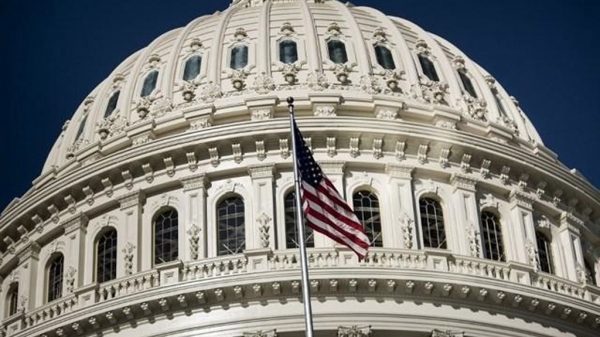Global inflation: Five ways US rate rise will affect you

Shawdesh desk:
The US central bank has announced its biggest rate hike in nearly 30 years as it ramps up its battle to bring soaring consumer prices under control.
It lifted the rate the Federal Reserve charges banks to borrow by three quarters of a percentage point.
The consequences will be felt in nearly every corner of the economy – in the US and abroad.
Here are five ways the rate rise in the US will affect you.
More expensive mortgages and other loans
The immediate impact is in the US, where people will face higher borrowing costs for mortgages, credit cards, student loans and other debt.
The average rate on the popular 30-year fixed home loan has already surged to nearly 6% – its highest level since 2008. For the person buying a median-priced home in the US, that means monthly payments have gone up by about $600 since the start of the year.
“I wish I had started looking earlier,” says Delores Robinson, a retired educator from Ohio, who bought a new apartment this month.
Ms Robinson says she was relieved to lock in a relatively low rate, though it was higher than it was when she started her search. But for some buyers, the rising rates will push purchases out of reach.
The National Association of Realtors expects home sales in the US to fall 9% this year.
That drop might feel painful to people prevented from purchasing, but it is also expected to cool price growth to 5% in 2022, after double digit gains in recent years.
If that happens, it will help bring down inflation, a sign the Fed’s moves are working.
Smaller pensions and more expensive Uber rides
When rates lift off, it tends to prompt a dramatic reshuffling of investments. And with general economic concerns rising, those moves have been especially pronounced.
For those with money in the stock market, like people with 401k retirement accounts, that has meant seeing a sharp slide in the value of their investments.
The S&P 500 has sunk more than 20% since the start of January – a milestone known as a bear market – while the Nasdaq has shed nearly a third of its value.
Risky assets, like cryptocurrencies, have seen their prices drop too, which stock exchanges outside the US have also been hit.
Investment firms are also pulling back from riskier ventures, demanding profitability from companies like Uber that have been operating at a loss for years.
That means people are likely to face higher prices for things like taxi rides and deliveries – or see such firms fold, as was the case for a number of start-ups that emerged in New York promising 15-minute groceries.
“In times of uncertainty, investors look for safety,” Uber boss Dara Khosrowshahi wrote in a letter to staff last month about the steps the firm would take to try to boost its bottom line, including slowing hiring. “It’s clear that the market is experiencing a seismic shift and we need to react accordingly.”
Job market slowdown and recession risk
As demand cools, it is putting an end to the booming post-pandemic labour market, which has seen companies competing fiercely for workers, allowing new hires to command higher pay and other perks and encouraging many to switch jobs for better.
Property giants Redfin and Compass this week announced plans to reduce their staffs by hundreds this week, citing the downturn and higher rates.
A slew of big companies like Uber, including Amazon, Walmart, Tesla and Spotify, have also announced plans to slow or halt hiring.
The head of the US central bank, Jerome Powell, has said he is hopeful the economy will avoid mass job losses, noting that the US labour market remains very tight – with nearly double the openings to people hunting for positions.
But the economy was already facing challenges as inflation raises costs for companies and cuts into people’s spending power.
Growth already contracted in the first three months of the year. And while that was attributed to a quirk in international trade data, other indicators, like retail sales, have begun to darken.
As higher rates collide with a weakening economy, analysts say the bank risks bringing on a sustained slowdown, also known as a recession.
Stronger dollar
The US dollar has risen 10% this year, as the Fed’s moves prompting investors to shift money to America in pursuit of higher returns, boosting demand for its currency.
For Americans planning trips to places like the UK, where the value of a pound sank below $1.20 this week – its lowest since the pandemic – it’s a silver lining.
But elsewhere, the rise of the US currency means more expensive imports of commodities like energy and food, which often trade in dollars. That adds to economic strains, especially if a government holds a lot of debt in dollars.
“Emerging markets tend to be the markets that really do stand to suffer the most,” says Fiona Cincotta, market analyst at City Index.
Higher rates abroad
Many are fighting their own battles with inflation. But they are also taking cues from what’s happening in the world’s largest economy.
In countries like Kuwait and Saudi Arabia, where currencies are tied to the dollar, the impact of US rate rises is almost immediate, with banks hiking in lockstep, as they try to contain an outflow of funds to the US.
As those moves start to be felt on the ground, the economic story in the US will continue to be closely watched.























Leave a Reply